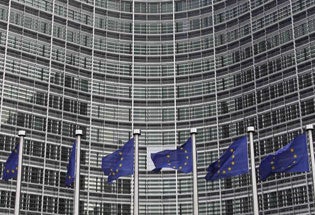Your support helps us to tell the story
From reproductive rights to climate change to Big Tech, The Independent is on the ground when the story is developing. Whether it's investigating the financials of Elon Musk's pro-Trump PAC or producing our latest documentary, 'The A Word', which shines a light on the American women fighting for reproductive rights, we know how important it is to parse out the facts from the messaging.
At such a critical moment in US history, we need reporters on the ground. Your donation allows us to keep sending journalists to speak to both sides of the story.
The Independent is trusted by Americans across the entire political spectrum. And unlike many other quality news outlets, we choose not to lock Americans out of our reporting and analysis with paywalls. We believe quality journalism should be available to everyone, paid for by those who can afford it.
Your support makes all the difference.David Cameron faces a "difficult" task in getting European leaders to reduce the EU's proposed budget increase for next year, Downing Street acknowledged today.
The Prime Minister, who has been calling for a freeze or even a cut in the £107 billion budget, is now focused on just reducing the rise from almost 6%.
British officials accept that the budget will go up by at least 2.9%, pointing to the fact that most other EU nations are pressing for an increase because they stand to benefit.
Mr Cameron last night launched a diplomatic offensive on the eve of today's summit of EU heads of government in Brussels, where budget discussions will dominate side-meetings.
He spoke to German chancellor Angela Merkel and French president Nicolas Sarkozy via telephone in a bid to piece together a coalition to oppose the 5.9% proposal.
That has been backed by the elected European Parliament and the executive European Commission.
The European Council, consisting of EU ministers, has agreed to pursue a 2.9% rise in a decision reached via qualified majority voting (QMV). The UK's objections were overwhelmed.
Mr Cameron's spokesman said today: "Our focus is on preventing the 6% proposal which is supported by the European Parliament and the Commission from going ahead.
"In an ideal world we think the budget should be frozen or reduced but you need to remember that the majority of countries are net recipients of this budget, not net contributors, it's something that's dealt with by QMV.
"This is going to be difficult.
"Two European institutions, the parliament and the commission, both support 6% and then you have got the council, and most countries around that table are net recipients of this budget.
"So it's going to be difficult but we are focused on getting it down below 6%."
Agreeing to a 2.9% increase in the budget - which is likely to cost the UK another £435 million a year - will anger Tory eurosceptics who want a freeze or a cut.
Labour too has accused the Government of failing to stand up for British interests.
Mr Cameron will press his message on Berlin and Paris - the two leading EU power-brokers - in further meetings with their leaders after this week's summit.
Ms Merkel is to visit the Prime Minister at his country retreat of Chequers on Saturday, when they will have talks over dinner together in the evening.
Mr Sarkozy is to attend an Anglo-French summit in London next Tuesday.
The budget negotiations for 2011 are seen in Whitehall as a crucial starting point in ensuring that the longer-term "financial perspective" for 2014/2020 is kept down to a minimum.
European Commission President Jose Manuel Barroso hit out against changing the Lisbon Treaty today, warning that anything that reduced member states' rights would never be accepted.
"I think we should not put process ahead of substance. So what is the substance of Treaty change?" he said hours before the summit started.
"If Treaty change is to reduce the rights of member states on voting, I find it unacceptable and frankly speaking it is not realistic.
"It is incompatible with the idea of limited Treaty change and it will never be accepted by the unanimity of member states. And as you know a Treaty change requires unanimity."
Mr Barroso went on: "If Treaty change is to address the issue of the economic and financial crisis response, we have to discuss what are the ideas. For its part the Commission is focused on the substance and what can be the ways of creating some kind of mechanism. We are focusing on substance rather than on process."

Join our commenting forum
Join thought-provoking conversations, follow other Independent readers and see their replies
Comments